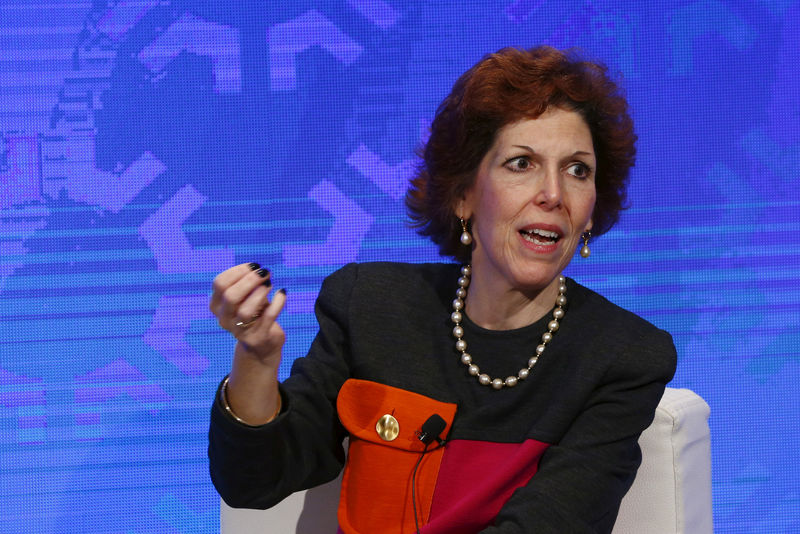By Howard Schneider
ATLANTA (Reuters) - From rising wages to a slowdown in housing, economic evidence is mounting that the U.S. Federal Reserve is at or near a neutral level of interest rates where it can take stock of where the economy stands before deciding on its next moves, Cleveland Federal Reserve president Loretta Mester said on Friday.
The comments from a usually hawkish reserve bank president, made in an interview on the sidelines of the American Economic Association annual meeting, add to the sense that the roughly quarterly pace of rate hikes enacted by the Fed for the past two years may take a pause this year absent a surprise jump in inflation or faster-than-expected economic growth.
"We are in a new world," Mester said, where the obvious need to raise rates has given way to a situation where economic growth is expected to slow, wages are rising on the basis of low unemployment, interest rate sensitive sectors of the economy like housing have ebbed, and the unemployment rate has roughly "stabilized" at a low level.
Taken together, Mester said, those are the sorts of developments one would expect in an economy where interest rates were near a neutral level that was neither encouraging nor holding back economic activity.
"We really need to be looking at the data and having the economy tell us, do we need to move more? Do we need to move more, faster? Can we wait?" Mester said. "We should take our time and assess....We may be where we need to be."
Overall, she said she felt the Fed was in a "really good spot."
Mester, reiterating comments by Fed Chairman Jerome Powell earlier in the day, said she was also paying careful attention to recent volatility in financial markets, both for the information that may convey about economic risks, and for the risks volatility itself could produce if it starts to undermine economic confidence.
"Obviously that is something you want to pay attention to,” Mester said. But she said the turbulence may also stem from a different view of the economy than that shared by many Fed officials who feel confident U.S. growth will remain on track for the next year, with labor markets still strong.
"What does what is going on in the financial markets tell you about the fundamentals? That is an open question," Mester said.
"My interpretation is that the markets did see and put emphasis on the downside risks to growth and some of the softening data coming out of China and some of the European countries. On the other hand the economic fundamentals and today's labor market report supports a view that the U.S. economy is still on sound footing."
Stocks surged on Friday after the Labor Department reported U.S. firms created 312,000 jobs in December, and Powell said the Fed would be flexible in deciding on any further rate increases.

(This version of the story corrects "next year" in original to "this year", in second paragraph)